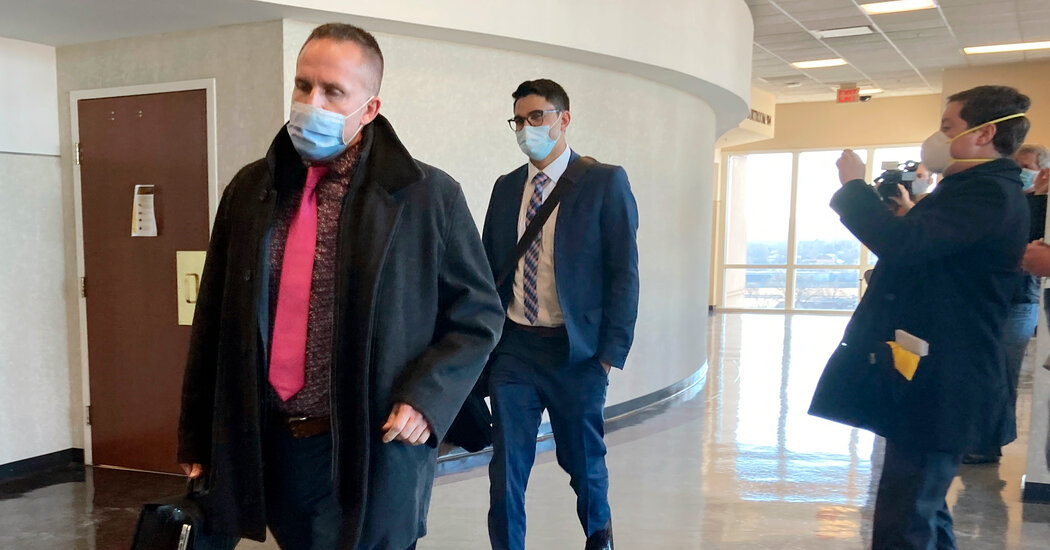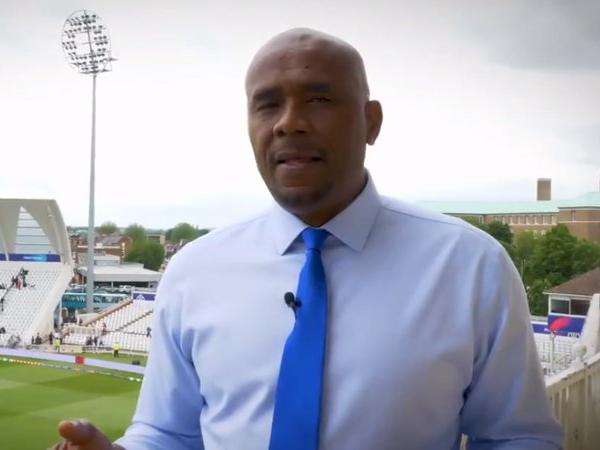

The only trial to emerge from the nighttime police raid that killed Breonna Taylor began on Wednesday, but the case centers not on an officer who shot her, but rather on a former police detective accused of recklessly endangering her neighbors by firing into their apartment in Louisville, Ky.
Brett Hankison, who was fired several months after the March 2020 raid, is facing three charges of wanton endangerment after firing 10 shots during the operation. The former chief of the Louisville Metropolitan Police Department said that Mr. Hankison had fired “blindly,” and that several bullets entered a neighbor’s apartment, endangering the three people who were sleeping there: a pregnant woman, her husband and their 5-year-old child.
When officers broke down the door to Ms. Taylor’s apartment, her boyfriend shot one officer in the leg. The boyfriend, Kenneth Walker, later said that he had not heard them announce themselves and believed that they were intruders. Officers returned fire, killing Ms. Taylor, a 26-year-old Black woman who worked as an emergency room technician. Her death ignited protests in Louisville and across the country.
Officers had initially received court approval to serve a “no-knock” warrant on the apartment, where they believed they might find evidence of drug trafficking connected to her ex-boyfriend, but the orders were changed before the raid, requiring officers to announce their presence before entering the apartment.
Unlike other recent high-profile police shootings, which have often been recorded on video, there is no such record of the final moments before Ms. Taylor’s death because police officers did not use body cameras. The killing of Ms. Taylor brought renewed scrutiny to no-knock warrants as competing accounts emerged about whether the police had identified themselves before knocking down her door.
It also brought criticism of the justification the police used to obtain a warrant to conduct the raid. The police said they believed that the former boyfriend had used her apartment to receive packages linked to drug dealing, but Ms. Taylor had recently severed ties with him, according to her family’s lawyer. Her ex-boyfriend was already in custody by the time officers raided her apartment. The police also did not have an ambulance stationed in the area.
Mr. Hankison fired 10 bullets into a patio door and window of Ms. Taylor’s apartment without a clear line of sight, and some of them entered the neighboring unit. His bullets struck a soap dish, a table and a sliding-glass door. None of Mr. Hankison’s bullets struck Ms. Taylor or anyone else, but two other officers’ bullets struck Ms. Taylor, and she bled to death after being shot five or six times.
Since Ms. Taylor’s death, several cities, including Houston and Minneapolis, have restricted the use of no-knock warrants. Earlier this month, a Minneapolis police officer shot and killed Amir Locke, a 22-year-old Black man, while serving a no-knock warrant on an apartment downtown.
The opening statements on Wednesday come months after the Kentucky attorney general, Daniel Cameron, announced that his office would not charge either of the two officers who shot Ms. Taylor, including Detective Myles Cosgrove, who the F.B.I. said fired the fatal bullet. Grand jurors who voted to indict Mr. Hankison said that Mr. Cameron, a Republican, had not presented them with the option of pursuing charges for killing Ms. Taylor.
In Louisville, people protested in the streets for more than 100 days over the failure to charge any officers in Ms. Taylor’s death. Earlier this month, lawyers and Judge Ann Bailey Smith of the Jefferson County Circuit Court began tediously whittling a group of 250 jurors down to just 15. By Tuesday evening, the jury for the trial — expected to take two weeks — had been empaneled.
Under Kentucky law, a person commits the crime of wanton endangerment when he or she “wantonly engages in conduct which creates a substantial danger of death or serious physical injury to another person,” and does so “under circumstances manifesting extreme indifference to the value of human life.” Other states may use terms like “reckless endangerment” for an equivalent offense.
The crime is a felony and can bring a sentence of up to five years in prison and a fine for each count. A person can be guilty of wanton endangerment even if they did not intend to harm anyone or to commit a crime.
24World Media does not take any responsibility of the information you see on this page. The content this page contains is from independent third-party content provider. If you have any concerns regarding the content, please free to write us here: contact@24worldmedia.com

Marnus Labuschagne Caught Off-Guard By ODI Captain Call After Steve Smith Snub

Everyone Is Looking Forward To It, The Standard Will Be Very High – Jacques Kallis On CSA’s SA20

Danushka Gunathilaka Granted Bail On Sexual Assault Charges

Ramiz Raja Sends Legal Notice To Kamran Akmal For Defamatory, False Claims Against The Board

Harbhajan Singh Reckons Mumbai Indians Should Release Kieron Pollard Ahead Of The IPL Auction 2023

Ian Bishop Praises Sam Curran For His Performances On Bouncy Australian Tracks

Why Choose A Career In Child Psychology?